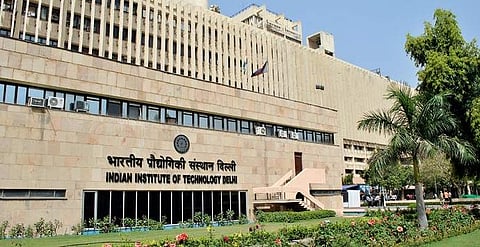

A research team from the Indian Institute of Technology (IIT) Delhi has developed a non-invasive, time-efficient and patient-friendly diagnostic tool for focal epilepsy detection. Their study is published in Nature's Scientific Reports journal.
The researchers have come up with an electroencephalogram (EEG based brain source localization (BSL) framework for epileptogenic zone detection. The study is titled 'Anatomical harmonics basis based brain source localization with application to epilepsy', as per a report by PTI.
The report also mentions that epilepsy is the fourth most common neurological disorder in the world. The symptoms include brief episodes of involuntary body (partial/entire) movement called seizures and may be accompanied by loss of consciousness and control of bowel or bladder function. It is caused primarily due to erroneous excessive electrical discharges.
The IIT Delhi officials explained that many types of epilepsies can be controlled by medicines. However, when medicines fail to control seizures, it is called as drug-resistant epilepsy. Drug-resistant epilepsies are most likely to originate from structural abnormalities in the brain.
This is the reason why brain surgery offers a complete cure for these patients, provided the exact origin and extent of abnormality is identified by a neurosurgeon. The officials added further that the most complex and tedious task in surgical evaluation is to determine the origin of electrical abnormality and correlate it with structural abnormality of the brain.
Lalan Kumar, Department of Electrical Engineering, IIT Delhi, said, "Given the EEG data with seizures, the array processing algorithms can point the coordinates within minutes. We have proposed utilisation of spherical harmonics and head harmonics basis functions for seizure localization. To the best our knowledge, this is the first attempt in non-invasive and time-efficient seizure localization."
"The researchers have validated the proposed source localization algorithms on clinical EEG data for epileptogenic zone localization. The proposed framework offers an effective solution to clinicians in automated and time-efficient seizure localization. It is a breakthrough considering comfort of patients," he added, as per PTI.
The research has been developed by Amita Giri, a Prime Minister's Research Fellow (PMRF) in the Department of Electrical Engineering at IIT Delhi. She came up with this epileptic region detection method as a major part of her PhD work.
Tapan K Gandhi, Professor at IIT Delhi, and Nilesh Kurwale from Deenanath Mangeshkar Hospital and Research Center, Pune are other members of the research team.
